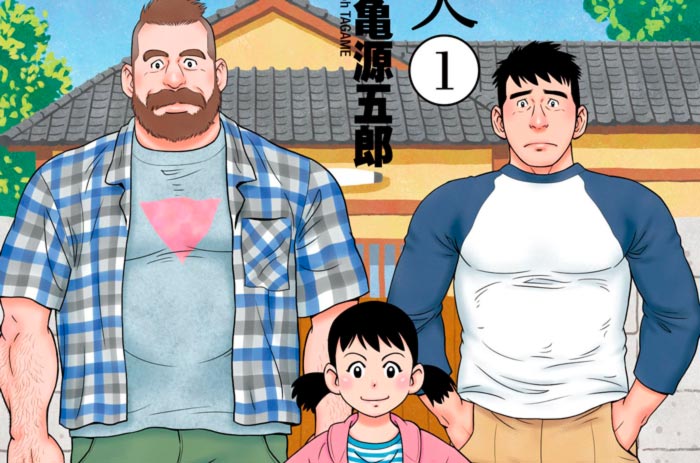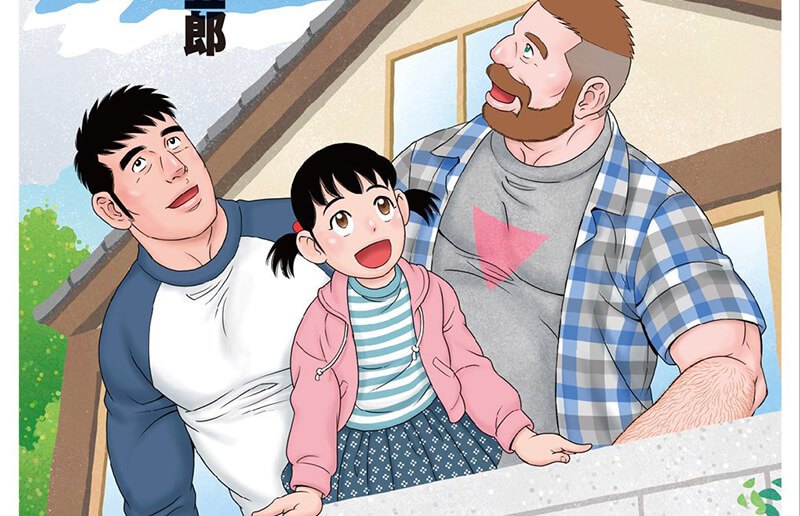This review explores Otouto no Otto (My Brother’s Husband) by Gengoroh Tagame, a moving manga about family, cultural taboos, and acceptance. Through my personal reading experience on ComicK, I’ll share what makes this story unforgettable its emotional highs, cultural insights, tender moments, and a few areas where it left me conflicted.
Reading Otouto no Otto on ComicK
I first stumbled upon Otouto no Otto on ComicK, and what started as casual reading quickly turned into one of the most heartfelt manga experiences I’ve had in years. This isn’t a flashy action-packed story; instead, it’s quiet, deeply emotional, and strikingly human.
Following Yuichi, his daughter Kana, and their unexpected bond with Mike the Canadian widower of Yuichi’s late brother was like sitting down with a family that slowly let me into their most intimate struggles. Reading it on ComicK was smooth, free, and without distractions, which only made the emotional beats hit harder.

A Story That Balances Warmth and Tension
What struck me first was how the manga didn’t shy away from discomfort. Yuichi’s hesitation around Mike felt painfully real, and honestly, I found myself frustrated with his stiffness at times. But that’s what made the story so compelling it didn’t sugarcoat Japanese cultural reservations toward homosexuality. As a reader, I admired how Kana, with her innocent openness, provided the balance that softened the story’s heavier themes.
At the same time, the manga sprinkled warmth throughout. Family dinners, simple conversations, and even quiet silences carried weight. These small moments reminded me that family isn’t always about blood it’s about acceptance.
Still, I couldn’t help but feel the pacing occasionally dragged, especially in quieter stretches of dialogue. While subtlety is beautiful, some scenes lingered longer than they needed to, diluting the emotional punch.
Characters That Feel Like People You Know
Mike immediately won me over. He’s warm, goofy, yet vulnerable exactly the kind of uncle you’d want around your kids. The way he navigates Japanese customs with respect (and a touch of clumsiness) was both endearing and thought-provoking.
Yuichi, on the other hand, was harder to like at first. His guarded nature mirrored many real-world attitudes I’ve encountered, which made his gradual change more satisfying. His evolution reminded me of conversations I’ve had with older relatives who took time to unlearn their prejudices.
Kana, though, stole the spotlight for me. Her blunt honesty, her joy at simply having an “uncle Mike,” and her childlike clarity gave the story its most genuine moments. Without her, the manga wouldn’t shine nearly as brightly.
Cultural Layers That Hit Hard
As someone who’s fascinated by cultural differences, I found the subtle commentary on Japanese society both eye-opening and sobering. The tension Yuichi felt when Kana’s teacher questioned Mike’s influence hit a little too close to home it reflected how societal prejudice often hides behind a mask of “concern.”
The onsen trip, where the family shared space with Yuichi’s ex-wife, was another standout moment. It felt like the perfect metaphor for healing awkward at first, but ultimately restorative. That scene spoke volumes about how family can shift, reshape, and still hold meaning, even after divorce or death.
And then there was the visit to the family grave. As someone raised with a deep respect for ancestral traditions, that moment resonated powerfully. Seeing Mike included in such a sacred ritual was the ultimate symbol of acceptance, even if society at large still hasn’t caught up.
The Ending: Bittersweet Yet Hopeful
By the time Mike’s visit ended, I felt like I was losing a friend. His promise to Kana that he’d see her again wasn’t just for her, but for us as readers too. It reminded me of those real-life goodbyes where you know distance and culture might keep you apart, yet you still cling to hope.
Was the ending perfect? Not entirely. Part of me wished for a stronger confrontation with Japanese societal norms, or at least a firmer resolution for Yuichi’s character arc. But maybe that’s the point real change is slow, messy, and unfinished. The manga chose honesty over fantasy, and that’s why it lingers in my mind.

Why Otouto no Otto Matters Today
What makes this manga special isn’t just its story it’s the courage behind it. In a country where gay marriage remains illegal, Otouto no Otto feels both radical and necessary. It’s not loud activism; it’s quiet storytelling that changes minds through empathy.
For me, it wasn’t just a manga it was a mirror. It made me reflect on how I react to difference, on the biases I might carry, and on how children often see the world with far more clarity than adults. That’s why I’d recommend this to anyone, even those who “don’t read manga.”
A Manga Worth Keeping Close
Reading Otouto no Otto on ComicK was more than just entertainment; it was a lesson in compassion, family, and the ways we stumble (and grow) through acceptance. It’s rare for a story to be both gentle and challenging, but this one managed to do just that.
Would I call it flawless? No. But its imperfections only made it more human. And maybe that’s why, long after closing the final chapter, I still carry Mike, Yuichi, and Kana with me.
Read more:
- The Rose of Versailles Review: Lady Oscar’s Untold Story
- Komi-san Has a Communication Disorder Review: A Struggle for Friendship
